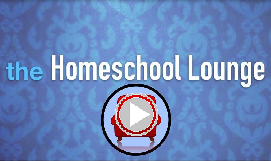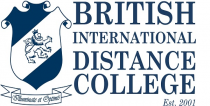Homeschool Prosecution
Many parents fear prosecution by authorities if they fail to register their children for home education. It is believed that the BELA Act has closed all loopholes and there are no just causes not to register anymore. Apart from closing loopholes, the BELA Act has also increased the penalty for non-compliance to a one year jail sentence. This believe has created a lot of fear in the home education movement and many people have reluctantly decided to register.
The question of whether all loopholes have indeed been closed is debatable. There are some people that believe the additional restrictive conditions in the BELA Act actually increased the number of just causes for non-compliance. Click here for an article about this.
The remaining question is whether the probability of prosecution has also increased with the introduction of the BELA Act. This article will attempt to answer this question.
How will education departments prosecute?
Broadly speaking, the state can use two methods to enforce compliance.
- Broad based enforcement is an attempt to introduce a surveillance system can potentially capable identify most offenders and apply penalties. Examples of broad based enforcement is the systems used for the enforcement of tax laws and traffic laws.
- Selective enforcement only hope to find a few offenders and successfully prosecute them and make an example of them, to create sufficient fear so that the majority will hopefully voluntarily comply. Examples of this is the system through which crimes such a murder and rape are handled. Such cases are given media attention and when judgements are served the judges often make comments that they hope that the severe penalty will send a message to criminals.
For prosecuting home educators that fail to register, broad based or even selective enforcement of Clause 35 would likely be prohibitively expensive and yield limited meaningful benefits. This article will analyse the prosecution process to justify this statement.
The prosecution process involves two phases. The first phase must be executed by education departments and the second phase by law enforcement departments.
The Education department phase
S3(5) of the SASA describes the process that the education department must follow prior to submitting a complaint at the SA Police. The components of the process are as follows:
- Identify non-compliance: Education officials must locate parents who fail to register their children.
- Investigation and remediation: Education officials are required to investigate and address the reasons why parents did not register, aiming to remediate concerns of parents.
- Issuing written notices: If parents still refuse to register after remediation, officials must issue a written notice. Only if parents ignore the written notice without a just cause are they potentially guilty of an offense.
- Final compliance opportunity: Parents must be given a reasonable opportunity to comply with the requirements described in the written notice, before education officials can proceed with further actions. Once the department has completed its steps it may file a complaint with the South African Police Services (SAPS) to start legal proceedings.
The challenges associated with this phase are as follows:
- Whereas S4A of the BELA Act defines a process through which learners enrolled in schools that fail to attend school are reported, no such reporting process is defined for home learners. The makes the identification of unregistered homeschooling learners significantly more difficult than truant learners at school. Due to wide dissatisfaction with the BELA Bill, many parents indicated their intent to “operate under the radar”.
- Gathering evidence against families is challenging, as home education occurs in the private sphere of the home. Investigations into such situations could be seen as an infringement on the right to privacy.
- Enforcing the prosecution process for unregistered homeschooling families will impose an additional administrative burden on provincial district and head offices in order to investigate the situation, remedy the situation and issue the written notice in terms of S3(6) of the BELA Act. For example, the Western Cape Education Department has reported a hiring freeze, and a 21% vacancy rate, while already operating under significant strain. Other provinces are likely facing similar challenges.
- The SA Schools Act allows for “just cause” as a defence for failing to register. However, the definition of “just cause” is unclear, and could include many valid reasons such as those outlined in Annex A. The burden will rest on education departments to proof that all possible just causes used by parents are invalid.
Law enforcement phase
The BELA Act requires that the Criminal Procedures Act be followed in cases where a parent refuses to apply to register after all concerns were remedied and a written notice was issued. This process consists of the following steps:
- Education officials can file a complaint with the police.
- The police must appoint an investigator to compile a docket with all the necessary evidence for prosecution.
- This docket must be submitted to the prosecution authorities.
- Only when a prosecutor decides to prosecute, will an application be submitted to the court, and parents can be subpoenaed to appear in court.
- Even if parents are found guilty, it may be challenging for judges to justify jail sentences for administrative neglect, as such outcomes could negatively affect the interests of the child.
Challenges in prosecuting non-registered families:
- Resource constraints: There is a shortage of detectives in the SA Police Services. Police stations prioritise crime in terms of the severity of the crime, risk to public safety, vulnerability of victims, evidence strength, and resource constraints, among other factors. In essence, failing to register for home education is an act of administrative neglect in which not victims are involved. Administrative neglect, such as failing to register for homeschooling is unlikely to be prioritized due to its low severity and lack of direct victims. Similar resource constraints exist in the prosecution authorities and the Department of Justice.
- Complexity of litigation. Litigation against families will not only be in terms of the SA Schools Act (SASA) but also other legislation such as the Children’s Act, legislation dealing with religious freedom, etc. making litigation complex. Furthermore, care must also be taken to avoid exposing parents to double jeopardy.
- Investigation challenges: South African Police Services (SAPS) detective may lack the expertise needed to investigate non-compliance with the SA Schools Act. Establishing a specialized unit for such cases might be necessary but could be difficult to justify given the low severity of the offence. Alternatively, education departments could establish dedicated enforcement divisions, but these divisions must be independent of those administering home education, to ensure fair and consistent enforcement.
- Risk of judicial review: The BELA Bill faced significant opposition from homeschooling families during parliamentary public participation on both substantive and procedural grounds. State attempts to enforce the BELA Act through litigation could prompt a judicial review of the Act itself.
- Complexity of determining of a child’s best interest: Deciding what is in the best interest of an individual child is complex, multi-faceted process, requiring input from various professionals such as psychologists, therapists, medical doctors etc. This complexity makes court cases involving home education costly and resource intensive.
- Lack of precedents: Due to the unique circumstances of each homeschooling family, individual court cases are unlikely to establish meaningful precedents. This is particularly true for cases heard in the Children’s Court, which cannot set binding legal precedents. As a result, litigation will not become easier over time due to precedents.
- Restrictions on publicized cases: Using litigation as a means to “make an example” of families is difficult as there are restrictions on reporting cases involving children, limiting the potential deterrent effect.
- Erosion of trust: Litigation against homeschooling families would harm the trust between the home education sector and the state, making it harder to establish a mutually beneficial oversight model through mediation.
- Challenges with criminalization: The penalty clause (Clause 2) that criminalize parents has faced widespread opposition from diverse organizations making its implementation problematic. It was rejected by a diversity of organisations in their submissions to parliament.
- Rejections: Organisations such as Equal Education, the Commissioner for Children, Pestalozzi Trust (supported by legal opinion) and Malihambe 7th Day Adventist Church rejected the criminalisation of parents.
- Labour concerns: COSATU objected to Clause 2, because it also criminalises teachers and school staff if they act in terms of the labour law.
- Alternatives to imprisonment: SADTU and the Legal Resources Centre did not support the increase of the imprisonment period and proposed other means to ensure compliance.
Challenges with selective prosecution
Apart from challenges to successfully prosecute described in the above section, creating fear by means of selective enforcement will also be difficult for the following reasons:
- Since children are involved, it will be difficult to give a lot of media attention to the court case.
- Serving a severe penalty to a family that is guilty of administrative neglect, will probably cause public outcry and appeals, rather than fear.
Conclusion
While the BELA Act introduces harsher penalties and has generated widespread fear among homeschooling families, the practical barriers to prosecution remain significant. From resource constraints to legal complexity and the difficulty of identifying unregistered learners, enforcement is far from straightforward. Moreover, the possibility of just cause defenses and widespread public opposition to criminalizing parents further complicate the state’s ability to prosecute effectively.
Rather than acting out of fear, parents should stay informed, stand firm in their convictions, and continue to advocate for their constitutional right to direct their children’s education.

Comments
Events
Legal & Research
Centres
Homeschool ABC
Support
Curriculums
Learn, code and create with Ubbu
Introducing ubbu!An Adventure of Code and Play! Learn, Code ...
LEARNING TO READ EASY WITH THE ...
Parents and educators – these popular reading books are ...
Ginini Training Institute
Ginini Academy is an EdTech home education content provider ...
Has no content to show!































